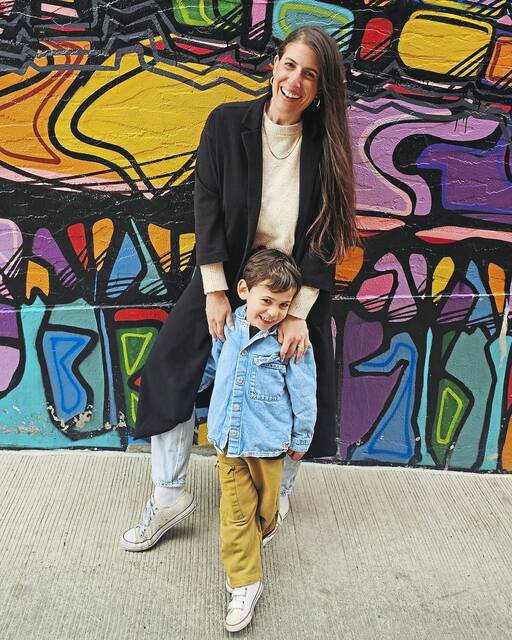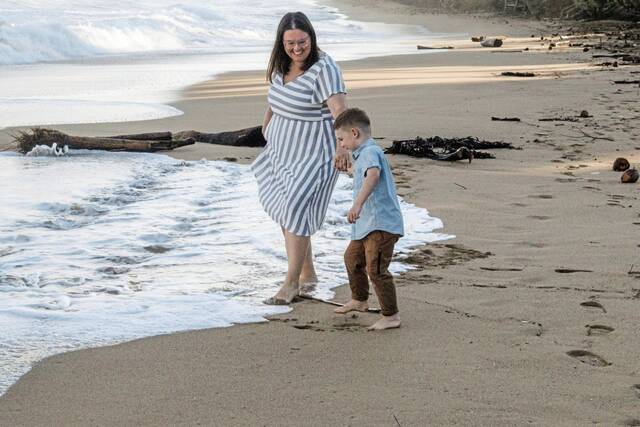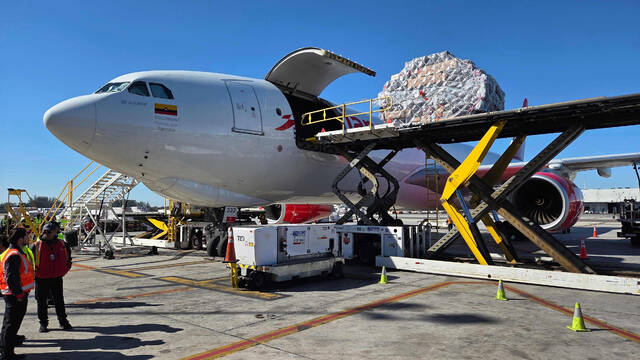Jacqueline Stein didn’t have any difficulties getting pregnant.
She also had an easy and enjoyable pregnancy, and a “fantastic” labor and delivery experience. But despite the dream scenario, the Toronto resident didn’t want any more children after having her son, Alex, who is now 4.
“I just always envisioned a small family,” said Stein, 40. “I knew for my own mental well-being, for the life I wanted to give to my son, I didn’t envision having more children.”
Research shows Stein isn’t alone.
Despite President Donald Trump’s efforts to reignite the U.S. birth rate, more parents are choosing to be “one and done.”
The president and his administration have begun wading through various policy proposals aimed at reversing America’s declining birthrate, including a “Trump Account,” in which every child born between 2025 and 2028 gets a $1,000 deposit into an “IRA for kids.”
But the White House is working against decades of declining birth rates: The percentage of women 40 to 44 who have one child nearly doubled from 10% in 1980 to 19% in 2022, according to Bowling Green State University’s National Center for Family & Marriage Research. The trend is consistent across all races and ethnicities, as well as educational attainment.
Infertility struggles, the rising cost of parenting and cultural changes are some of the biggest reasons more parents are choosing to be “one and done,” said Susan Newman, social psychologist and author of “Just One: The New Science, Secrets & Joy of Parenting an Only Child.”
“Today’s parents understand the complexities of our society and the difficulties of raising children in any number, so there is much less pressure to have a second child,” she said. “It’s an only child revolution.”
‘I definitely don’t want to do that again’
More U.S. women are getting married and having children later in life in pursuit of a higher education and career growth, Newman said. As their fertility window narrows, they’re faced with less time to have more than one child.
Among women 35 to 39, the number of births have increased by 90% since 1990, according to data from the Centers for Disease Control and Prevention. For women 40 and older, the agency found births increased by 193%.
More women are also pursuing assisted reproductive technology, like in-vitro fertilization (IVF) to have children later. Some may not want to repeat that long and expensive process to have a second child, Newman said.
Erin Gallimore, 41, struggled with infertility for eight years before she became pregnant with her son. After an emergency surgery at birth, the Asheville, North Carolina, mom said she was done having children.
“I definitely don’t want to do that again,” she said. “We love being able to take care of one child and still have our own lives.”
Rising costs of being a parent
The cost of raising a child also has been a deciding factor for many parents to keep their family small, said Toni Falbo, social psychologist and a professor in the educational psychology department at the University of Texas at Austin.
Driven by a national shortage of workers and facilities, the costs of day care and preschool in the United States are rising at nearly twice the pace of inflation. The average cost of care for two children is more expensive than the average rent in all 50 states and the average mortgage payment in 45 states, according to a report by the nonprofit Child Care Aware of America.
But it’s not just child care. Once a child is in school, parents are also expected to provide resources for extracurricular activities, such as clubs, summer camps, sports, musical instruments and tutoring, to raise a well-rounded child, Falbo said.
“It is quite expensive because our expectations are very high,” she said. “Successfully pushing a child through all the various stages of development is more expensive and more investment is needed.”
For Stein, she wanted to ensure she could travel with Alex and provide him with the cultural experiences she had as a child.
“Travel is extremely important to me, and the cost of travel is going up,” she said. “For the average middle-income family, if you’re adding another child, those experiences are often the first thing you have to shelve.”
‘You know what’s best for you’
Parents are more willing to stop after only one child because they’re realizing that a lot of the stigmas associated with only children don’t bear out in the data, Newman said.
Though common misconceptions dictate children with no siblings are lonely, spoiled or socially awkward, a review of more than 100 related studies shows that’s not the case. In fact, Newman said, only children often demonstrated generosity, social skills and emotional intelligence.
“Among American only children, they seem to have adequate self-esteem, and in some ways higher self-esteem like a firstborn, compared to somebody from a very large family,” said Falbo, who wrote the large study in the 1980s. “Self-esteem is a bedrock of mental health.”
Parents of only children also say they wanted to preserve their mental health. Although having a child improves maternal mental health, research has shown that happiness for the mother declines after every additional child.
Stein, who created an online community for mothers of only children, says prioritizing her happiness and well-being ultimately makes her a better mother for her son.
“Whether it’s by choice or circumstance … you know what’s best for you, and nobody else is taking care of your child,” she said. “It’s your body, it’s your life, it’s your finances, it’s your mental well-being, and those are the things that are important.”











